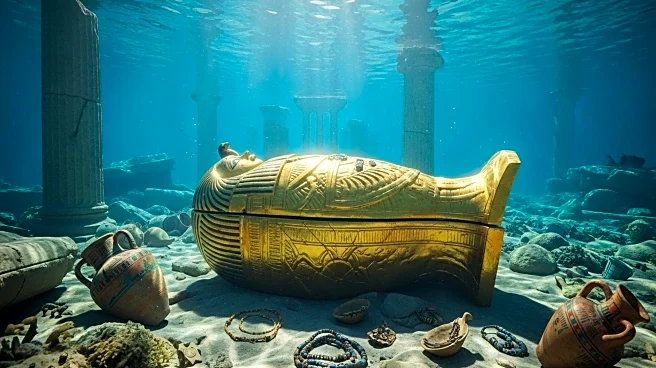What's Happening?
Artefacts from the ancient Egyptian city of Canopus have been recovered from the Mediterranean Sea near Alexandria. The city, once a significant trading hub, sank due to earthquakes and rising sea levels. The Egyptian Ministry of Tourism and Antiquities has retrieved several artefacts, including statues, from Abu Qir Bay, offering a glimpse into the historical significance of Canopus and its role in ancient trade and culture.
Why It's Important?
The recovery of artefacts from Canopus provides valuable insights into ancient Egyptian civilization, its trade networks, and cultural practices. These discoveries contribute to the understanding of historical urban development and the impact of natural disasters on ancient societies. The artefacts may also enhance tourism and cultural heritage preservation efforts in Egypt, attracting global interest in the country's rich archaeological history.
What's Next?
Further excavations and studies are expected to continue in Abu Qir Bay, potentially uncovering more artefacts and information about Canopus. The findings may lead to new exhibitions and educational programs, promoting awareness of Egypt's archaeological heritage and its significance in global history.
Beyond the Headlines
The discovery of Canopus artefacts highlights the ethical considerations of underwater archaeology and the importance of preserving cultural heritage. It also raises questions about the long-term impacts of climate change and sea level rise on historical sites, emphasizing the need for sustainable preservation strategies.











